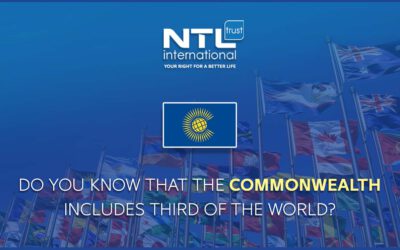
On March 2, 2020, the German government has launched a new regulation of laws regarding qualified professionals wishing to move to Germany for work. In its endeavour to bridge the massive shortage of skilled workers, many of the restrictions that were imposed on those with vocational and non-academic training from non-EU countries were eased.
It has never been easy for foreigners to come to Germany to work. Despite the launching of the Residency by Investment Program in Germany, which targets foreign businessmen who want to start a business in Germany. But for several decades, political leaders insisted on not following immigration policies for professionals and skilled workers. Consequently,
- The German economy suffers short of specialists due to demographic change.
- The skills shortage problem has been exacerbated unpredictably, currently 1.2 million job vacancies.
- Moreover, the expectation is that the country will lose more than ten million people by 2050 due to low immigration and the birth rate.
Therefore, The German government sought to remedy this deficiency under the slogan: Skilled workers are invited to Germany.
What changes did the new law introduce?
- Contrary to previous legislation, the concept of a skilled or “specialist” worker is no longer limited to academics holding a university or institute degree. Rather, the term now also applies to every person who has received a qualification certificate recognized in Germany.
- Previously, the Federal Employment Agency was checking whether applicants were suitable for a job from Germany or the EU before giving the company permission to hire a skilled worker from a non-EU country. Now, this priority check has been dropped.
- It was not permitted to obtain a job that could be filled by a German worker or one of the EU citizens. But now the Federal Employment Agency no longer takes this matter as a priority.
- In normal circumstances, it was not permitted to apply for a job unrelated to the applicant’s profession. Whether he resides on a regular visa or a job seeker visa. However, this aspect has been tolerated after expanding in the fields of employing foreign workers. Also, permitting is no longer limited to professions that are underemployed.
- Students who came to study in Germany can also search for work at a higher education institution or a training centre.
- The applicant must have a work contract or an offer from an employer in Germany in the area of their profession.
- If there isn’t an employment contract, but it can be verified that the applicant has obtained qualified vocational training, it is possible to apply for a residence permit for six months. It is allowed to find a job provided that the basic requirements are met. The German language is at the B2 level and there is enough money for life there.
- Job seekers are allowed to work for up to ten hours per week on probation or based on an internal training procedure.
- The new law also applies to foreigners seeking a professional qualification or university degree in Germany. But they must have obtained a diploma from a German school abroad or any other degree that qualifies them for university or vocational education. They must not be over 25 years old.
- Skilled foreign workers over the age of 45 must demonstrate that they earn at least 3.685 euros a month. Or have sufficient funds for retirement in old age.
If you have any questions regarding citizenship or residency by investment please contact us.
Do you know that the Commonwealth includes a third of the world?
Commonwealth Day is celebrated annually across 5 continents in Africa, Asia, the Caribbean, the Americas, the Pacific and Europe. Members of the British royal family are accustomed to attending the annual Mass. The Queen receives a speech broadcast worldwide and witnesses activities such as science marches, street parties, dancing, parades, discussions and festive activities.
Albania is Close to EU Membership
The European Commission said that Albania and Northern Macedonia have made sufficient progress, allowing them to be positioned as the official “candidate” in European Union membership bids
Turkish Citizenship Certificate Delay & Changes in the Processing!
The Civil Registration and Citizenship Department of Istanbul Province announced today the temporary suspension of receiving any reviews from investors who recently acquired Turkish citizenship and wish to obtain the citizenship certificate.
The Happiest Place on Earth is Still CORONA-FREE
In light of the widespread and rapid of the Corona epidemic Covid-19 worldwide, people are increasingly searching for a safe place to protect themselves and their families.
Grenada opens its consulate in Dubai – UAE
Grenada opens its consulate in the United Arab Emirates, and Ms. Rose Ann Benjamin became the Consul General in it, knowing that this consulate is not the only Grenada consular office in the region, but the services provided may differ from one office to another.





